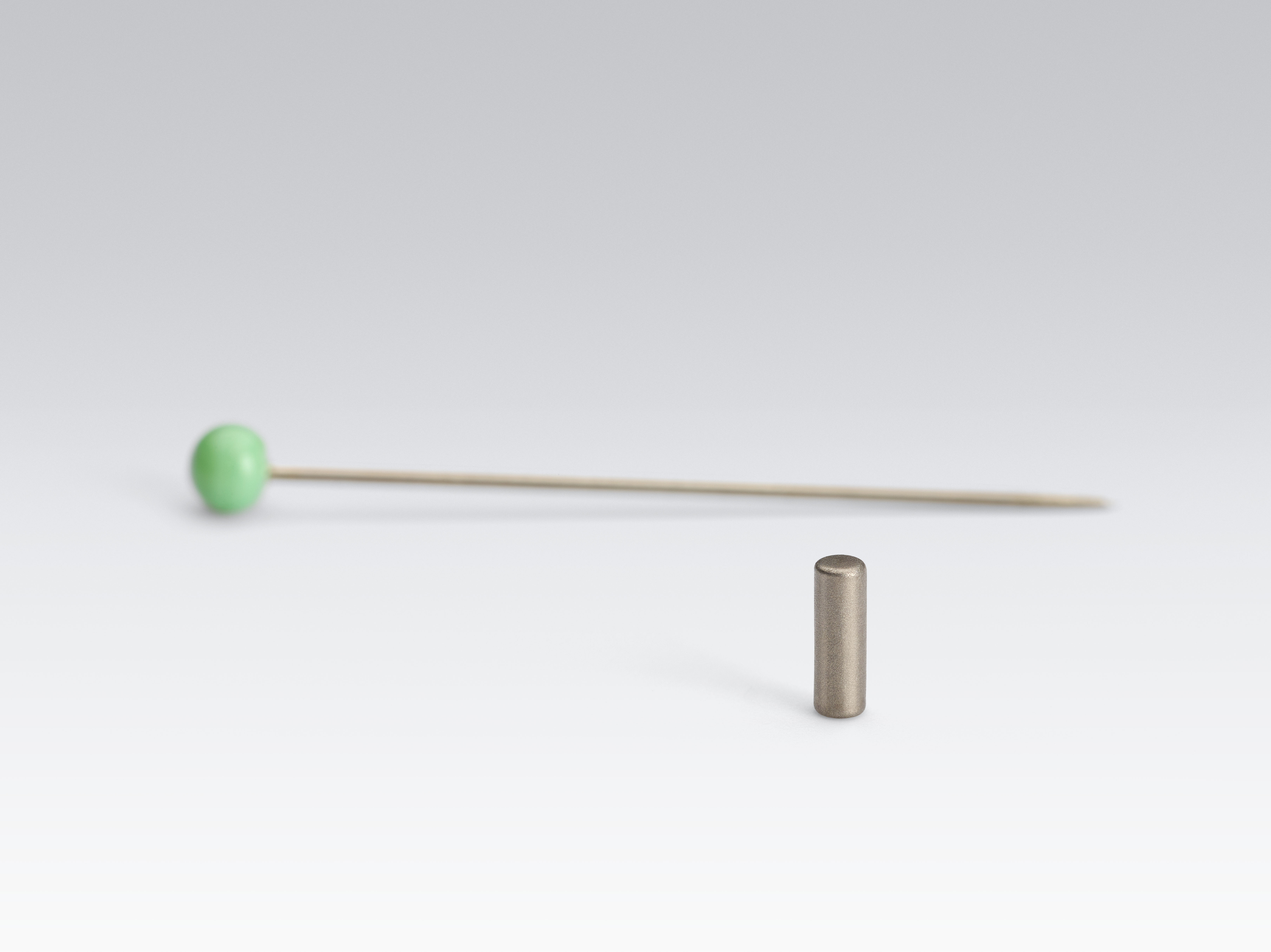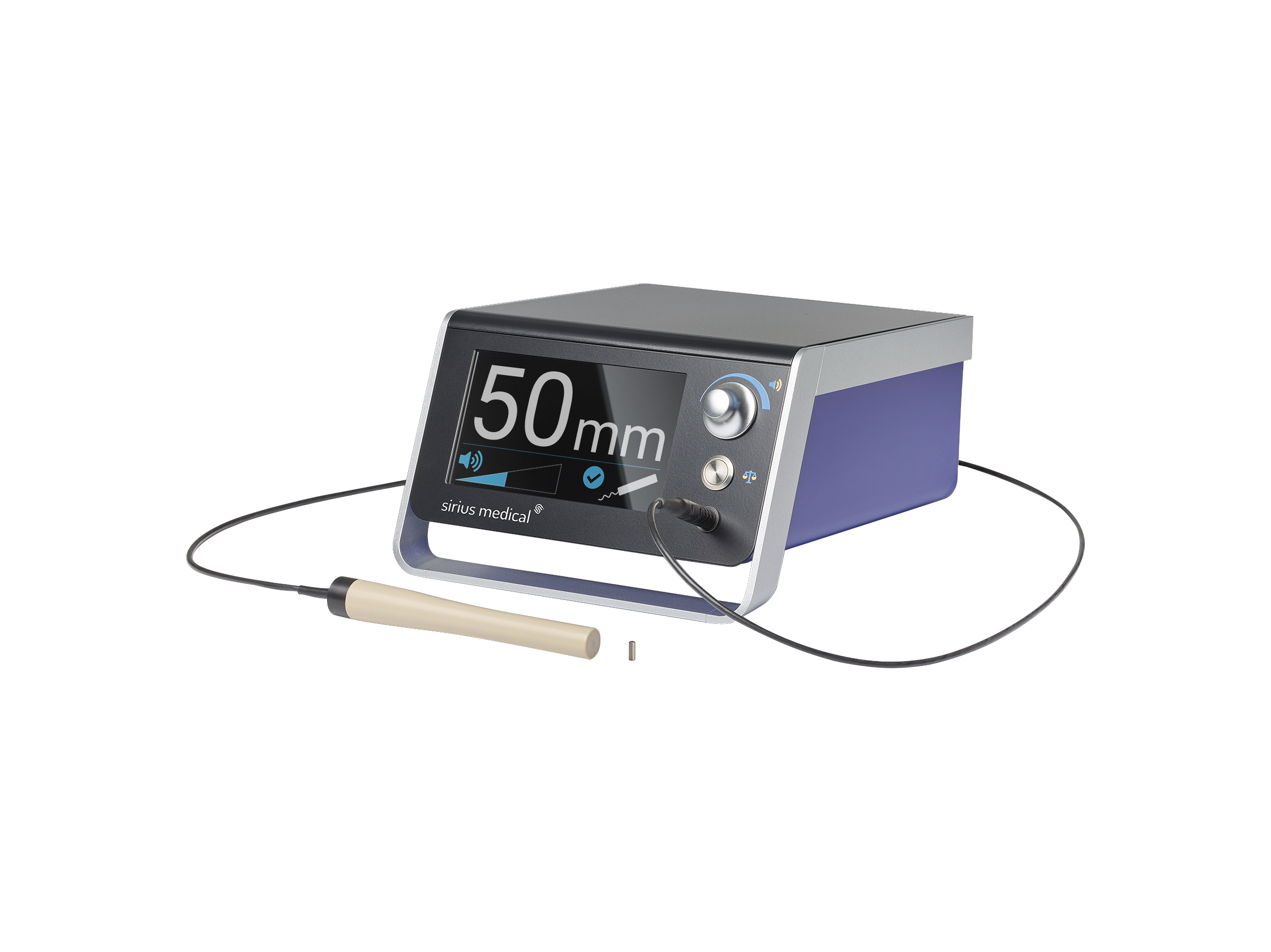Invention for Tumor Localization

“Helping hospitals, surgeons and radiologists to do a better job is important. But the utmost important matter is better comfort and patient safety and being able to help achieve a better treatment.”
Bram Schermers, Clinical Applications Specialist and Founder of Sirius Medical
New technologies make that medical specialists can detect very small tumors in the early stages of their development. This causes challenging procedures for surgeons because they must localize – and operate – these early stage tumors, which can’t been seen or felt. Up to now, surgeons have been using metal anchor wires or radioactive seeds to localize tumors in soft tissue and both are far from ideal. Now, there is new technology available; Pintuition from Sirius Medical.
Magnetism
Bram Schermers, Clinical Applications Specialist and Founder of Sirius Medical: “A couple of years ago I was working at the Netherlands Cancer Institute. The main question for my PhD research was: ‘Can we design a system that uses the benefits of radioactive seed localization, but without the downsides of radioactive seed localization’.” According to Bram, this simple question has led to an eight year study, laboratory research, clinic testing, CE mark and a ‘all lights green’ for Sirius Pintuition.
“In short, Pintuition uses a seed which can be placed in the tumor up to 180 days before the surgery. A localization device provides 3D guidance, localizing the seed and tumor. All this by using magnetism instead of current radioactivity-based systems”, Bram continuous. “The entire system consists of only two parts: a very small magnetic seed and a localization device for tracking the seed.” Since magnetism is unharmful for the body, this system is better for the patient. Besides that, there is no obligation for safety registrations for magnetism and no decay of radioactivity, which is a big plus for hospital logistical and safety departments.
Making it perfect
In the early days researchers were using a seed made of one tube and two end caps, glued together. Bram Schermers: “Correct, but using glue is a complicated matter with very small parts because of potential glue residue at the outside which can compromise biological security. We started the search for another solution, asking various specialists in fine-mechanical engineering and Jansen Precision Technology is the firm that came out first.”
Mark Jansen, director at Jansen Precision Technology: “I clearly remember the first contact. After hearing about the then current solution for the seed, I immediately got an idea for alternative mechanical engineering. By simplifying the design of the seed, by choosing other manufacturing techniques, like deep-drawing and laser welding, we were able to get a more reliable, cost-effective way to produce the seeds.”
After Sirius Medical and Jansen Precision Technology got to know each other a bit better, Jansen Precision Technology started re-engineering the seed. At first sight, that seems easy. But with a total size of ‘just’ a rice grain, consisting of two metal half-tubes and ultra-small components to be placed in the seed, it was a brain twister. Mark Jansen: “Correct, especially when you bear in mind that we required a design which could be reliably scaled to mass production with zero-to-non deviation in dimensions and quality assured.”
Better together
Bram Schermers: “When we look at Jansen Precision Technology we are very happy with the way how they deal with quality and their innovative thinking.” According to Bram Schermers, Jansen Precision Technology and Sirius Medical have good collaboration skills. That and the constant support of the quality assurance processes are a true value add from Jansen Precision Technology for Sirius Medical.
Mark Jansen: “It gives us a good feeling to be able to add our innovative ideas to the innovative ideas of a partner. Off course, we all have our specialties, but adding them together and mixing them with out of the box solution based thinking, the two companies are truly better together.”
Bright Future
Now the CE mark approval of Pintuition is a fact, there is a bright future ahead. Right after the summer of 2020 the first Pintuition systems will be supplied to hospitals in the Netherlands with the rest of Europe and other parts of the world to follow soon after.
But, the bright future for Sirius Medical and Jansen Precision Technology is not the most important matter here. Bram Schermers: “Helping hospitals, surgeons and radiologists to do a better job is important. But the utmost important matter is better comfort and patient safety and being able to help achieve a better treatment.”
“It gives us a good feeling to be able to add our innovative ideas to the innovative ideas of a partner. Off course, we all have our specialties, but adding them together and mixing them with out of the box solution based thinking, the two companies are truly better together.”
Mark Jansen, owner of Jansen Precision Technology
“When we look at Jansen Precision Technology we are very happy with their innovative thinking and how they handle quality as a default value.”
Bram Schermers, Clinical Applications Specialist and founder of Sirius Medical
Find out more about Sirius Medical on Twitter and LinkedIn


